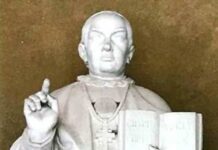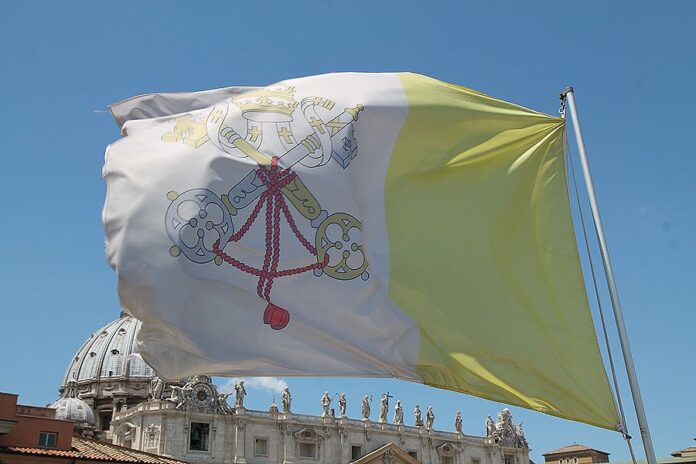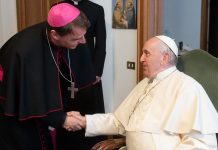A vital issue will be the number of processes carried out following reports of financial impropriety. In 2017, Moneyval said that “the results on the law enforcement/prosecutorial/judicial side two years after the last review remain modest.”
The upcoming report was supposed to be out in 2020. The pandemic has slowed down the process.
Meanwhile, many things have changed for the Holy See. Overwhelmed by the scandal concerning the Vatican Secretariat of State’s investment in a building in London, Pope Francis has, step by step, dismantled and rebuilt Vatican finances. The Secretariat of State has also lost the ability to manage its funds in favor of the Administration of the Patrimony of the Apostolic See.
Also, all the Vatican officials who helped to build up the Vatican financial transparency system and strengthened relations with Moneyval are no longer working for the Holy See. The committee, therefore, has lost all of its historical references in the Holy See. This can make a difference.
Without going into the details of the financial transactions in question, it is worthwhile reconstructing some passages of the story that led to the current situation.
In 2018, the Secretariat of State decided to invest in a luxury property in London. Two brokers succeeded in managing the investment until the Holy See, to avoid further losses and regain control of the operations, decided to take over the building.
In leaving the ongoing operations, the Holy See had, by contract, to pay the intermediaries. The Secretariat of State then asked the Institute for Works of Religion (the IOR or “Vatican bank”) for a loan to complete the investment.
At first, the IOR agreed. Then it changed its mind and reported the operations to the pope. After that, a summary procedure ordered by the pope began. This led to searches in the Secretariat of State and the Financial Intelligence Authority (AIF), and the suspension of five Vatican officials (and a further one) in the course of the investigations.
Pope Francis proceeded to change the top management of Vatican finances profoundly. Tommaso Di Ruzza, director of the AIF, was not renewed in his post, replaced by Giuseppe Schlitzer. René Brülhart, president of the AIF, was not renewed either, replaced by Carmelo Barbagallo. It was decided that the Secretariat of State would no longer manage funds, effectively emptying its administrative office competencies.
Who, then, is now in charge of the Vatican’s finances?
First of all, the Secretariat for the Economy. The body founded in 2014 and initially led by Cardinal George Pell has a very active prefect in Fr. Juan Antonio Guerrero Alves, S.J. He presented the budget of the Holy See last year and also the budget planned for next year, which he described as a “mission budget.” He stressed that Peter’s Pence would cover some of the deficit in the 2021 budget with 30 million euros ($36 million) out of the expected 47 million ($57 million).
Therefore, the Secretariat for the Economy has taken on the role of control and direction that should allow Vatican finances to be better managed. This should minimize the risk of errors — such as relying on the wrong intermediaries.
Subscribe to our daily newsletter
At Catholic News Agency, our team is committed to reporting the truth with courage, integrity, and fidelity to our faith. We provide news about the Church and the world, as seen through the teachings of the Catholic Church. When you subscribe to the CNA UPDATE, we’ll send you a daily email with links to the news you need and, occasionally, breaking news.
As part of this free service you may receive occasional offers from us at EWTN News and EWTN. We won’t rent or sell your information, and you can unsubscribe at any time.
Then the Administration of the Patrimony of the Apostolic See (APSA) is increasingly called to become a sort of “central bank” and has a central position in controlling investments.
To carry out this process, Fabio Gasperini, a layman with a long international career and earlier experience in the Vatican City State administration, was appointed secretary-general of APSA, becoming the first layman to hold the position.
But the only body from which APSA has received the management of the funds, by papal decision, is the Secretariat of State, following the investment scandal. When will the transfer of funds and investments from the Vatican Governorate and the Congregation for the Evangelization of Peoples to APSA take place?
The AIF, the Vatican’s financial intelligence body, is currently reaping the rewards of previous work. Barbagallo, the new president, worked to update the body’s statutes and for a change of name: the AIF is now known as the Financial Information and Supervisory Authority (ASIF). The changes to the statutes make the role of the authority’s president more central.
The ASIF also now responds to the general regulations of the Roman Curia. This might be problematic. The ASIF oversees only the IOR operations. But the IOR itself kept its autonomy, even in terms of the curial regulations. There is, therefore, a control body that has less independence than the controlled body — also in terms of wages.
In addition to these reforms, the Vatican’s financial watchdog has faced some issues with international partners. After the search and seizures in the AIF’s offices in October 2019, the Egmont Group, which brings together financial intelligence units from all over the world, suspended the AIF from its secure communication network.

























